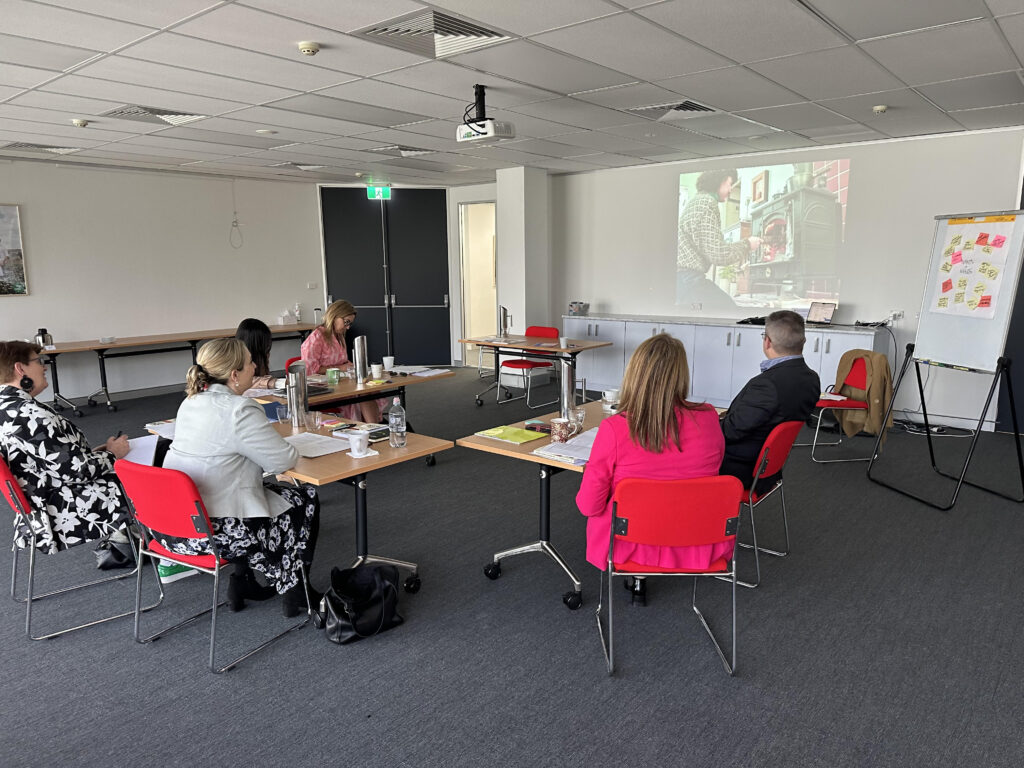LEADING WITH SYSTEMS THINKING
This week I had the pleasure of kicking off with a new leadership team with big aspirations to lead systemic change in Australia.
Liz Ritchie is the CEO of the Regional Australia Institute (RAI), and an old uni mate! We’ve kept in touch over the years – I’ve followed her work with admiration as she fearlessly tackles one of the biggest and most ambitious change programs in Australia today.
The RAI is an independent policy think-tank and research organisation dedicated to growth of opportunity in regional and rural Australia. Richie knows that if regions are stronger, Australia prospers. She also knows that her organisation’s voice alone is not enough to realise the large-scale systemic change necessary to make a lasting impact on the prognosis for regional economies.
Whilst briefing me on the project, Liz shared some of her goals for change.
“There was a growing level of frustration about the issues impacting regional Australia. So regional people called for a collectively designed vision and plan. A North star, or driving purpose, that aligned the vast array of intersecting issues and interests of regional Australia and provided the systemic platform we needed,” she told me.

Following extensive work and consultation the RAI spearheaded a massive effort to combine forces with public, private, government and NFP organisations, all with a vested interest in regional prosperity to build a shared ambition. Over two years of applied effort, they built the Regionalisation Ambition 2032 – a Framework to Rebalance the Nation to drive regional growth involving collaborative action from multiple stakeholders. It involved a massive consultation effort including 2000+ individuals from over 150 organisations and all levels of government.
“The work required deep systems thinking in order to galvanize any kind of change. The reason traction was slow is because this is a big wicked challenge and many big, wicked challenges are impossible to deal with without creating a systems approach.”
“Wicked” challenges are such because they involve a tangled web of problems for which there are multiple stakeholders, no single identifiable cause, no precedent, and no way of evaluating whether any single remedy will work. The design theorists Horst Rittel and Melvin Webber first introduced the term “wicked problem” in 1973 to draw attention to the complexities and challenges of addressing planning and social policy programs. Wicked challenges are complex and require systems thinking to solve. Poverty, homelessness, domestic violence, terrorism, and climate change are all examples of wicked problems.
Regionalisation is a wicked problem – because you cannot drive regional economic growth without also addressing housing, education, skills, health, infrastructure and environmental factors. For this reason, the Regionalisation Framework invites regional organisations to make pledges that facilitate any of five pillars that support regional growth: population, jobs & skills, liveability, productivity and innovation, and sustainability and resilience.
As Richie told me: “I was on repeat about working with the coalition of the willing. We were the architects, not the owners for the Regionalisation Ambition. The ambition to rebalance the nation is owned by the movement. By leaning into systems thinking, leveraging collective intelligence, and enabling collaborative action we almost became the container or holding yard for the mobilisation of good. This entire movement was based on strength-based principles. It’s about having ambition, aspiration, hope and optimism all rolled into one.”
Ritchie maintains an optimistic view. “The complexity is so vast that we ne need to think long-term. We are really conscious when we launch a progress report that we’re leading with the positives and highlighting areas where we need to double our focus. No single agency can solve this alone. It is only through sharing and learning from this work that we can build the momentum required to lead a whole of system change.”
For organisations like the RAI, being connected is about more than just tapping into the collective intelligence of a team. It’s about tapping into the collective intelligence of a system.

To think systemically is to appreciate that everything is connected. Instead of viewing things in linear cause-and-effect ways, system thinking invites us to acknowledge and appreciate the intricate web of relationships and feedback loops that influence outcomes. We are individuals, working in teams, interacting in an organisation, within a marketplace, in an economy, in a geo-political context, on planet earth.
In business, systems thinking encourages us to appreciate how market dynamics emerge through the many interactions of individuals working in teams, in organisations, and to look for patterns across these entities that influence outcomes, rather than trying to over-simplify what are inherently complex problems.
Over the next 8 months, I will be working with Liz and her leadership team to strengthen their bonds of connection and empower them to continue to continue to adopt systems thinking to facilitate large-scale change.
If you want to find out more about how I can help your leadership team tackle wicked problems, then reach out for a free consultation.